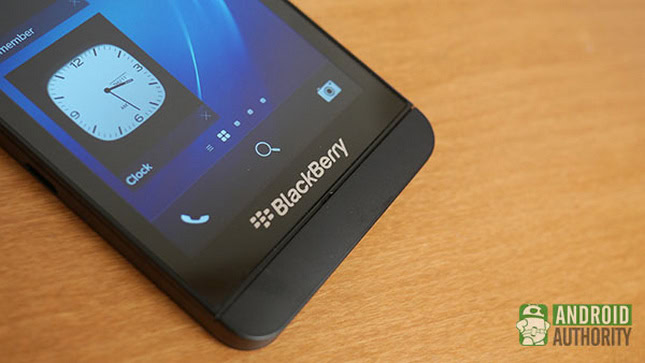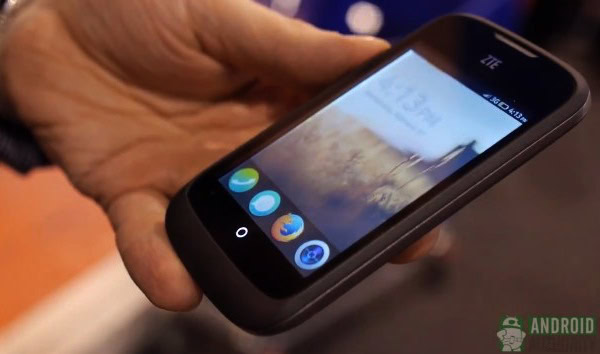The rise and fall of Android’s biggest competitors over the last decade
2020 marks the beginning of a new decade and the end of another. One of the best ways to look forward is to first look backward, and today we are doing so by highlighting some alternative mobile OS competitors that attempted, but ultimately failed to dethrone Android (and iOS) over the last 10 years.
Some of these offerings paved the way for Android as we know it today, inspiring some of the platform’s future features and design language. Others came to the party a little too late and found the challenge to establish a competitive mobile platform was too difficult. Though there were plenty of other would-be Android alternatives that arose over the course of the decade, here we’re presenting the rise and fall of a few of the best and most notable.
BlackBerry 10

Blackberry 10 (BB10) launched in 2012 as the successor to the outdated Blackberry OS (BBOS). It launched a few months later on the BlackBerry Z10 and Q10 handsets. It had a few tricks up its sleeve, like intuitive gesture navigation and the useful Blackberry Hub, which put all notifications, calls, and messages into a single app.
Blackberry (formerly Research in Motion) released a few more BB10 handsets over the years until it began migrating its efforts elsewhere. The operating system failed to gain any significant traction against Android and iOS. Blackberry produced its final BB10 device in 2015 — the Blackberry Leap. In 2017, Blackberry threw in the towel, announcing BB10 was officially in maintenance mode until the end of 2019 and passing the Blackberry global brand over to TCL Communication.
Blackberry 10 was a decent mobile OS, but it paled in comparison to Google and Apple's offerings.
Several services such as the Blackberry World app store, the Blackberry Travel site, and the Playbook video calling service slowly began shutting down over the next two years, but existing Blackberry users were guaranteed critical infrastructure and services beyond the end of 2019.
TCL’s first wave of Blackberry-branded phones kicked off with the Blackberry KeyOne, which ran Android, not BB10. Of course, it wasn’t the first Blackberry phone to run Android, that was 2015’s Blackberry Priv,
Read also: Here are the best BlackBerry phones
Though BB10 and BBOS are no longer supported, the Blackberry ethos has been kept alive thanks to the TCL-made Android-powered phones with Blackberry software baked in, including the Blackberry Hub. In the end, BB10 was a decent mobile OS, but it paled in comparison to Google and Apple’s offerings. Though it was a short-lived endeavor, many mobile computing enthusiasts around the world have fond memories of BB10 and the Blackberry that once was.
Firefox OS

Firefox OS might be the most underwhelming Android alternative on this list. It launched in 2013 and it was only commercially available for about two or three years. Mozilla first launched Firefox OS under the name Boot to Gecko. Since the OS focused on web apps, the company saw it fitting to name it after Firefox’s web engine — Gecko. Mozilla later renamed it to Firefox OS, and the first devices launched in Brazil, Poland, Portugal, Spain, and Venezuela.
It wasn’t until 2014 that we saw Firefox OS devices come stateside, and by the end of that year, Mozilla reported 14 Firefox OS smartphones were available by 14 operators in nearly 30 countries. Only a year later, Mozilla announced it would no longer develop nor sell Firefox OS devices (h/t: TechCrunch). A few months later, Mozilla officially announced it was killing the project as a whole to focus on IoT, which also didn’t last long.
Mozilla gave mobile computing its best shot with Firefox OS.
Mozilla never meant for its OS to compete in the high-end market. It saw there was a need for more competitive budget devices around the world and figured Firefox OS could fill that gap. Similar to Google’s Chrome OS, Firefox OS focused on web apps. This meant developers could more easily create applications using technologies like JavaScript, HTML5, and CSS.
Unfortunately, the OS was fairly barebones, unstable, and the handsets were severely underpowered. And since Mozilla targeted developing markets, there wasn’t a lot of money to be made. This was especially true since people in these areas still much preferred Android. All-in-all, Mozilla gave it its best shot with Firefox OS. But honestly, what did we expect from a non-profit that had no prior experience developing mobile operating systems?
Related: I spent a week with a $17 KaiOS phone – here’s what I learned
At least there is a silver lining here. Since Firefox OS was developed as an open-source project, it was later forked to create what we know as KaiOS today, which is a pretty successful mobile OS in its own right.
Tizen

The Linux Foundation first developed Tizen in 2011 as a successor to MeeGo, which, at the time, was a one-year-old joint effort between Intel and Nokia. Samsung and Intel led Tizen’s initial development. They wanted to not only target smartphones but other embedded platforms like netbooks, tablets, smart TVs, and automobile entertainment systems as well.
After two years of development, Samsung announced it would release multiple Tizen phones in 2013 and that it would fold its own Bada OS into Tizen. Since then, Samsung has pushed Tizen on nearly all of its smartwatches, a few smartphones, and other IoT devices.
Samsung tried to push Tizen as an Android alternative this past decade and failed to get a foothold.
Though Samsung has seen huge success with Tizen on its smartwatches and smart TVs, it has never been a hit with smartphones, at least not yet. In fact, we almost didn’t even include Tizen on this list for one glaring reason. Unlike every other mobile operating system on this list, Tizen is still in development for smartphones.
Samsung’s most recent Tizen-powered phone — the Samsung Z4 — launched in mid-2017, and we suspect Samsung will keep development moving forward, especially considering the current Huawei trade ban. If Samsung ever finds itself in the same position as Huawei, it will have a backup plan instead of trying to play catch up after the fact.
Related: Samsung is still working on Tizen phones (and that’s the smart thing to do)
We inevitably decided to include Tizen on this list because whether or not it is still in development, Samsung tried to push it as an Android alternative this decade and failed to get a foothold. But who knows, maybe when 2030 rolls around you will see Tizen in an article about the top mobile operating systems that led to Android and iOS’s demise over the last decade. Anything is possible.
webOS
Palm’s mobile endeavors date back as early as 2007 with the advent of Palm OS. Two years later, Palm announced webOS as the company’s new mobile OS, and it launched on the Palm Pre.
Palm released a few more phones before HP acquired it in 2010. Admittedly, not much happened after the acquisition. HP wanted to develop webOS for more than just mobile devices since it believed the OS could be successful in tablets and other IoT devices, but it didn’t make much progress.
webOS still lives on in LG smart TVs and other IoT devices.
Eventually, HP dropped the Palm branding for its smartphones before releasing the HP Veer and the HP Pre 3. The company also released a tablet called the HP TouchPad in 2011, and it pushed the final update to these devices in January 2012.
Before HP released that final update, it released the webOS source code under an open-source license. That way, the community could further develop it. In 2013, LG purchased webOS from HP to use in its smart TVs. It has since expanded webOS into other IoT devices. Though another of TCL’s branding experiments did eventually lead to another Palm “smartphone”, there are no mobile devices officially supported by webOS available today.
Related: Palm Phone review: Just buy a smartwatch
On the bright side, if you never had the opportunity to give webOS a try back in the day, you still sort of can. Years ago, the project was forked, and it still currently exists in the form of LuneOS. Just be prepared to jump through a few hoops. LuneOS is only supported on a few select devices and getting it on your phone isn’t that straightforward.
Windows 10 Mobile

What list of iOS and Android alternatives would be complete with Windows Phone and Windows 10 Mobile? The legacy started in 2010 with the first release of Windows Phone. Then, halfway through the decade, Windows 10 Mobile came onto the scene, replacing Windows Phone.
Windows 10 Mobile looked and functioned very similarly to its predecessor, but it offered deeper integration with the desktop and more spit and polish. Microsoft’s main selling point with its mobile offerings was convergence. The company believed that a smartphone that could turn into a desktop PC was the future of mobile computing.
Microsoft's homegrown mobile OS was perhaps the closest one to break up Google and Apple's duopoly.
Unfortunately, the rest of the world didn’t see the same future as Microsoft, and Windows Phone and Windows 10 Mobile never took off. It was only two years after its birth that Microsoft began discontinuing Windows 10 Mobile development. The platform effectively died in the last month of the decade.
Microsoft isn’t completely out of the mobile phone game, though. Recently, the company announced the Surface Duo, an Android-powered foldable smartphone that highlights the best of Microsoft’s hardware and application suite. Microsoft hasn’t announced official pricing or release date information about the device yet. When it does, the Surface Duo will usher in a new era for Microsoft’s mobile offerings. Hopefully, this one won’t go down in flames like the last one.
Related: Remember when budget Windows Phones ran better than cheap Android phones?
Microsoft’s homegrown mobile OS was perhaps the closest one to break up Google and Apple’s duopoly. Unfortunately, like most other Android alternatives on this list, it’s sleeping with the fishes. Now, all four of you who still use a Windows 10 Mobile device should really consider hopping over to Android. It’s long overdue.
There you have it — our list of some of the best Android alternatives that failed to dethrone the current diarchy. What do you think? Should we have added anything else? Did you try any of these mobile operating systems in the past? Which were your favorites? Let us know your thoughts and opinions in the comments below.
More posts about Android in the 2010s
from Android Authority https://ift.tt/3aJyeBm













No comments: